Graham Reid | | 7 min read
Oasis: My Big Mouth (from Be Here Now)
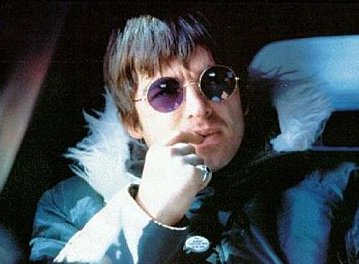
The trademark cockiness and dismissive
directness is still there, but at times this also sounds like a very
different Noel Gallagher, a man more circumspect and, although still
expletive-heavy, sounding less prone to shooting from the lip.
A little over two years ago we met
before an Oasis gig in Leicester and he was garrulous, quick-witted,
supremely confident and media-savvy. World domination was but a hit
single away.
He spoke about Oasis becoming "a
proper band, like U2” and doing the big American tours. Between
cigarettes backstage at the drearily named Gramby Halls, Gallagher
spoke of how their then-rivals Blur - and less so Pulp - were too
English for American audiences. Cigarettes and alcohol, he said
referring to one of his songs, any kid anywhere can understand that,
mate.
And he was right.
An hour later they played a blinder of
a show which seemed to confirm all the claims --most of them by him –
made for Oasis.
Back then Oasis were on a roll: they’d
conquered Earls Court the week before and pulled 20,000 to each of
their two nights, their consistently strong second album (What's the
Story) Morning Glory had assured them their place as the Great Hope
of British Rock and the British rock press - and increasingly
mainstream papers - were hailing Noel and Liam Gallagher as laddish
cultural icons. They were poised to conquer America on the back of
the Wonderwall single. There were even two Oasis tribute bands.
It was all going to plan. But then it
unravelled: eight months later and a mere 15 minutes before they
embarked on a month-long American tour, Liam stormed off the plane,
their Australia/New Zealand tour was cancelled and headlines were
reading “Oasis Split."
The relationship between the two
brothers, charitably described as "volatile”, would seem to
have finally been their undoing. Liam was later arrested in
possession of suspicious white powder (he was cautioned and
discharged without conviction), Noel’s pronouncements on his
drug-taking (as normal as “a cup of tea in the morning”) hit
headlines . . . and the media fed off them daily.
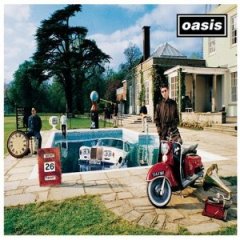 But rumours of their demise were
premature, although last years Be Here Now album - big, brawling and
stadium-sized though it was was hardly set cash registers on fire in
the way most-expected. Even Noel, usually
evangelical in advancing their cause, has admitted the album wasn't
quite as good as it could have been.
But rumours of their demise were
premature, although last years Be Here Now album - big, brawling and
stadium-sized though it was was hardly set cash registers on fire in
the way most-expected. Even Noel, usually
evangelical in advancing their cause, has admitted the album wasn't
quite as good as it could have been.
However they are still capable of
commanding headlines for their archetypal rock`n’roll behaviour as
this weeks flight from Hong Kong to Perth proved - no flight
attendant left uninsulted, no obscenity so dull it isn’t worth
repeating. Cigarettes and alcohol, mate.
But on this night two weeks ago, the
last of their American tour, Noel is in his hotel in Atlanta playing
pinball. It’s 5.30, there's noticeably less braggadocio, and in an
hour he's “off to meet some kids and ’ave me tea, then just go
out and do it”.
“This is our third week here, usually
we don’t last more than a couple or three days,” he laughs. “But
a lot's changed, I think we have realised how close it came to us
throwing it all in. We are more leaving each other to their own
devices -- and trying not to drink as much, because usually it comes
down to drunkenness more than anything. But this is the last gig.
Done it, mate. Actually finished an American tour, I think there’ll
be a few drinks tonight."
But a tour of only three weeks hardly
makes for a conquered America and he concedes now Oasis simply don't
have it in them to stay on the road for two years. And he admits
“we’re not playing the big stadiums because we're not as popular
as we were last year.”
The band have been downsized for their
March 9 concert here too.
Scheduled to play the Supertop in '95
before the tour was cancelled (capacity 13,000) they are now booked
for the Carter Holt Pavilion which holds 5000, although that's up
1000 on the North Shore Events Centre where they were originally
scheduled this time.
With Be Here Now taking a critical
pasting in some magazines, some shows in Britain panned and Britbands
such as the Verve and Radiohead hailed in their stead, do Oasis look
to be suffering from the long expected backlash back home?
“Yeah, and it happens too often to be
just a coincidence. When you are the top, the press like to believe
they had something to do with it.
“People in England don’t like
people in England being successful. We are a nation of shopkeepers
and one shopkeeper doesn’t like another doing well.
“I was glad to get away. I was sick
of sticking round to justify my existence to a bunch of students. You
just got to escape the hysteria of the album only selling 7 million
copies so it’s deemed a failure. Get a life, man," he sniffs
derisively. (Or words to that effect.)
But after criticism of Be Here New he
does admit to some pressure on him as a songwriter.
“I didn’t feel it last time because
I was like God`s gift to the world. I’ll probably feel it this time
because I've got to go and prove myself - but again here I'm falling
into that hack thing saying I’ve got to prove myself. I don’t
have to prove myself to anyone. But I don’t like being criticised.
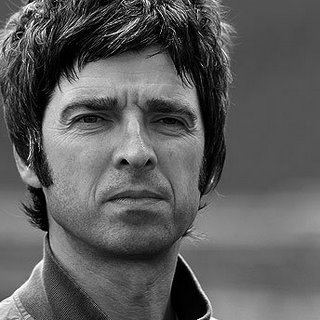 “But this is probably the most
successful tour we’ve done ever because I think a lot of people
were writing us off over here before we came.”
“But this is probably the most
successful tour we’ve done ever because I think a lot of people
were writing us off over here before we came.”
That opinion is confirmed by
enthusiastic American reviews and a second show added in Los Angeles.
And the anthemic, lighters-aloft sound of Be Here New seems just made
for American college kids in baseball stadiums.
“Well, we never go into studio and
say, ‘This is the one we’re going to do America with’ because
if you set yourself targets you’re just going to fail, aren't you?
“We just went in there to record the
best album we could do at that time and possibly the songs are a bit
overproduced, but it's just what it is, Oasis’ third album. The
songs could have been shorter, but apart from that it’s as good as
the other two [previous albums].
“The record company started hyping it
in England against our wishes. When you’ve got the head of your
record company saying two weeks before it comes out it's going to
shift 20 million copies you think, ‘What’s going on here?' “
He talks about the show they'll bring
here; four songs each from the first two albums, half a dozen from
the new one, his acoustic set and maybe they’ll dust off their
furious version of I Am The Walrus for us because we haven't heard
it.
But no Street Fighting Man, the Rolling
Stones cover they do very badly on their new single?
“Nah, we never do it live. I think at
the time Keith Richards was having a go at us in the papers so we
thought we`d like to record one of his songs just to piss him off.
He’s going on how bad Oasis are, but when he gets the cheque for
about $50,000 from royalties . . .”
He is amused that a recent Melody Maker
in Britain has a Radiohead versus Verve cover in the manner of the
now notorious Oasis versus Blur wars of the mid Nineties.
“They’re my two favourite bands at
the moment, I’m just surprised they didn’t throw us in the
middle,” he laughs then, as a media veteran, says wearily, “I
suppose they’ll learn from the mistakes were made with the papers.
They don’t do you any favours.
“It’s a good laugh and we took it
with a pinch of salt, we were playing up to it in a way. But that's
just the English papers. If it's not Blur and Oasis or Radiohead and
the Verve it’ll be somebody else, and next year somebody else. Then
they accuse the bands of creating the climate of competition.
“It’s not like that. We always want
to be the best we can be but I don`t have to prove anything to
anyone. I said when we put out our first record in 94 that within
three years we were going to be the biggest band in England. And we
were. That’s it, that's what we done. So it's game over for us.
“But I don’t have to make silly
predictions anymore. People know who I am, I'm Noel Gallagher from
Oasis, that's all I need to say about myself.”
Now that’s the Noel of old. And it’s good to know he’s still there.

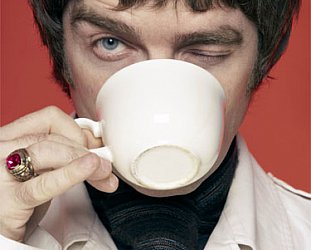
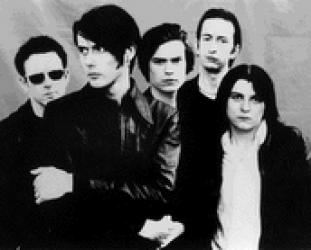
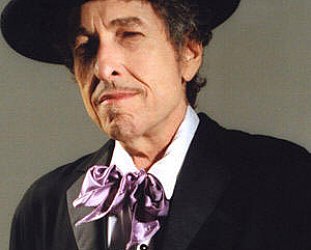
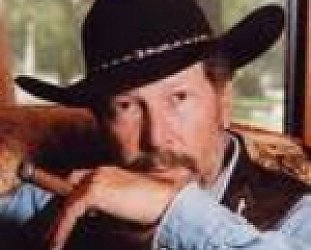


post a comment